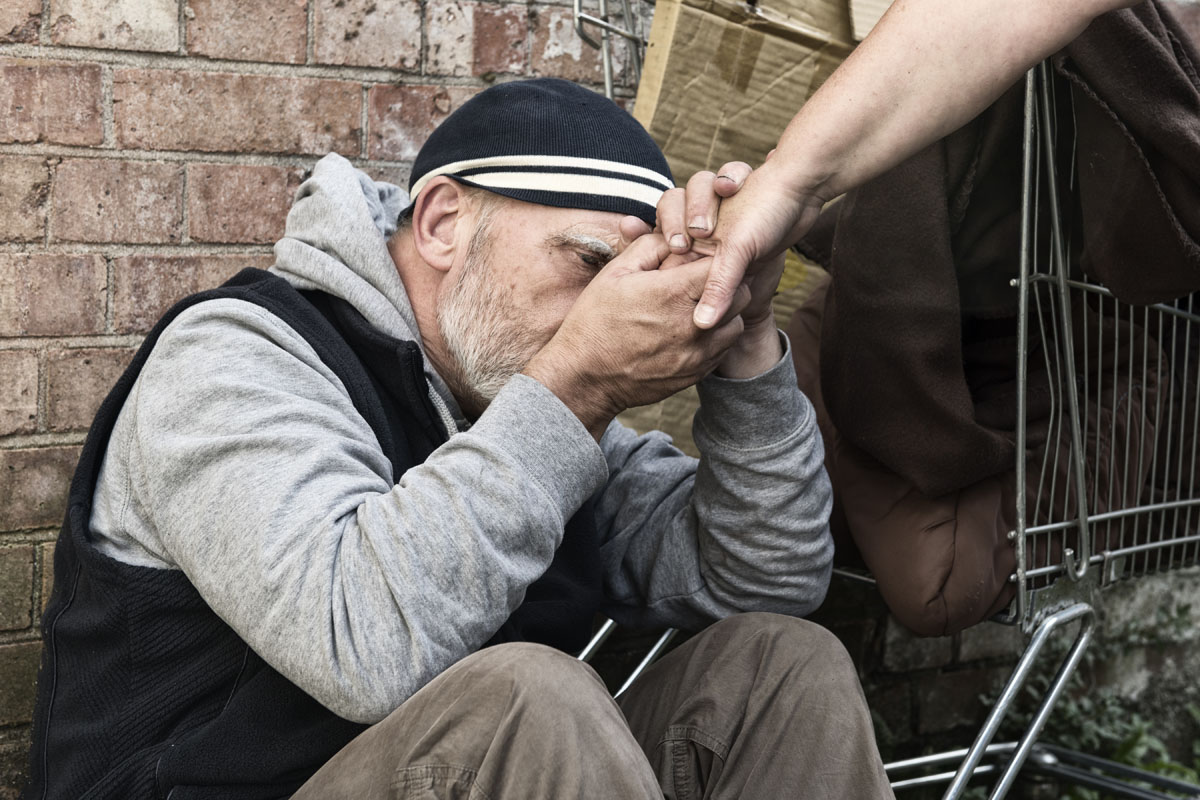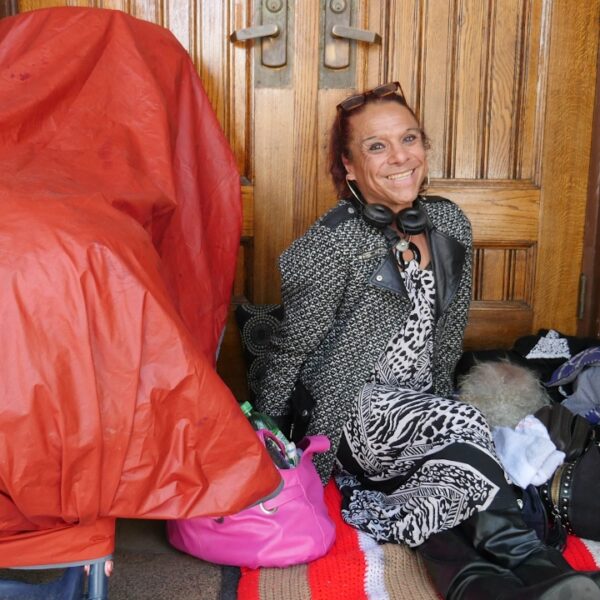It’s no secret large numbers of homeless people suffer from mental illness. The most common mental health diagnoses affecting homeless people are:
- Bipolar disorder
- Schizophrenia
- Anxiety disorders
While severe, mental illness doesn’t have to mean a lifelong struggle. Most of us know at least one person with one of these conditions who manages it well. In fact, when these disorders are treated effectively with medication and/or therapy, most can live normal, happy lives.
This clearly isn’t the case for people who are homeless. So often we see homeless people acting erratically, clearly in the grip of mania or psychosis. We may wonder, why don’t they manage their conditions? Surely if they did, their circumstances would improve. Maybe they wouldn’t have become homeless to begin with.
This thinking is simplistic and makes many assumptions. For example, it assumes mental health conditions are always diagnosed correctly. It also assumes people are able to get their medications refilled, if they ever had them in the first place.
Very rarely do people with mental illness, or any kind of illness for that matter, choose to suffer. Since there must be something keeping people who are homeless from taking medication, what is it, and what can be done about it?
Medication Is Expensive.
Homeless people are less likely to have jobs than housed people. Without a job or other source of income, they’re very unlikely to have health insurance. Even with health insurance or a cost assistance program, a $35-copay can be prohibitively expensive for someone who can’t even afford a meal. Those with severe mental illness often need several medications – an anti-psychotic along with a sleep aid, for example – and when these need to be refilled every month, costs add up.
When you have to choose between food and medication, food wins every time. Food is necessary for survival, and while going without medication comes at a grave cost, it can only ever come second.
They Can’t Get Their Prescription Renewed
Taking a medication consistently means getting it refilled, usually once a month, at a pharmacy. Barriers like lack of transportation or difficulty with organization can make this extremely difficult. Even making the phone call to get it refilled can pose a challenge for the many homeless people without cell phones.
Also, you need to see a doctor every so often to have your prescription renewed. The purpose of this is to evaluate whether the medication is still needed, or whether a different dosage or medication may work better. Getting to a doctor’s office while homeless presents many challenges of its own.
An additional challenge is theft. Many drugs for schizophrenia have high street value and get stolen without a locked place for homeless people to keep them. Even medications without abuse potential can be stolen simply because they’re in an orange bottle. Pharmacies can refuse to refill prescriptions if they fear the customer is selling or abusing their drugs. And if the individual has a history of substance abuse, they’re even more likely to do so.
Their Mental Health Condition Isn’t Diagnosed Correctly
There’s still stigma and lack of awareness around mental health. Oftentimes people start abusing drugs or alcohol long before they realize what they’re actually doing is medicating themselves. Bipolar disorder is harder to detect in adolescents, and can be mistaken for simple moodiness. People can hide depression and anxiety, at least for a little while. Eventually they worsen and can result in crises such as job loss, social isolation, and suicidality.
If substance abuse is involved, it becomes extremely difficult for professionals to accurately diagnose mental health conditions. It’s impossible to distinguish between effects of drugs, withdrawals, etc. and mental health symptoms. Many doctors will require a period of sobriety before prescribing medication, since certain combinations of medications and drugs are dangerous.
Achieving sobriety for long enough to have a psychiatric evaluation can be an impossible task for someone in the grip of chemical dependency.
Medication Isn’t Effective
Prescriptions are only effective when they’re up-to-date. As stated above, it’s important to see a doctor regularly to make sure you’re on the right medication at the right dose. Mental health conditions can worsen based on factors like stress, poor physical health and age. They can also arise quickly. In the months between doctor visits, symptoms could easily worsen to a point where the prescription isn’t helping enough. Individuals may decide there’s no point and quit taking them altogether.
Sometimes medication simply isn’t enough. In many cases, what’s needed more than a medication is therapy or inpatient treatment. Therapy works by guiding people toward changes in their thinking, behavior and lifestyle. However, it’s also expensive, and far more time consuming than getting to a pharmacy once a month.
It also takes a level of attention and investment that many homeless people just don’t have. Again, it comes down to priorities. When you sleep exposed to the elements every night, which is more important: making and saving money, or getting therapy?
What Makes Homeless People More Likely to Consistently Take Medication?
There are a few factors which make people who are homeless more likely to take care of their mental health:
- Being over the age of 40
- Having a primary care doctor
- Not abusing alcohol
These points give us clues about who is most at-risk for having poorly managed mental health symptoms. While we should devote resources to mental health conditions among all homeless people, we should keep in mind the risk factors putting people in especially high danger. Those who are young, who drink, and who don’t often go to the doctor are people who need to be told their mental health matters.
There’s still a perception mental health takes a back seat to physical health. However, poor mental health takes a heavy toll on physical well-being. Mental health issues also come with their own dangers, like suicide and reckless, risk-taking behavior.
There are many programs out there to assist people with filling their medications, and with their mental health in general. Find out what programs are in your area and build awareness of them. Donate, if you can. Do all you can to de-stigmatize mental health – talk about it, normalize it. Don’t be afraid to ask your homeless neighbors how they’re feeling, instead of just how they’re doing. You never know who might feel better just to talk for a while.













